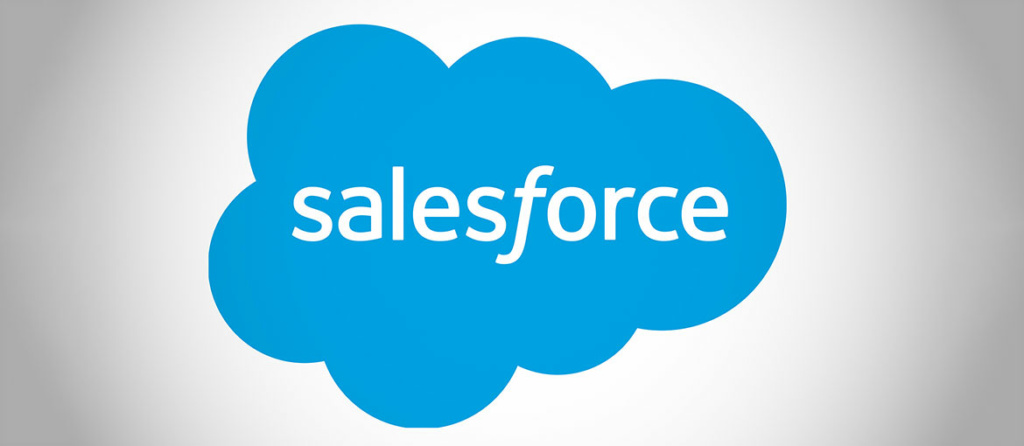Salesforce: A Quick Overview of Its Functionality
As the digital age progresses, particularly with the rise in online shopping, the manner in which businesses interact with their clientele has undergone significant changes. This evolution has propelled the rapid advancement of cloud computing technologies.
Salesforce stands out among these technologies as a CRM (Customer Relationship Management) platform, enabling businesses to forge new customer connections, streamline sales and marketing tactics, oversee transactions and customer support, among other capabilities. This piece aims to shed light on Salesforce’s essence and functionalities, necessitating a foundational understanding of CRM systems.

Understanding CRM
CRM software is designed to assist businesses in managing customer information effectively. Essentially, whenever a company representative engages with a customer or pursues a potential lead, valuable data is gathered. This information, historically stored in analog or disparate digital formats like notebooks or spreadsheets, is central to customer management.
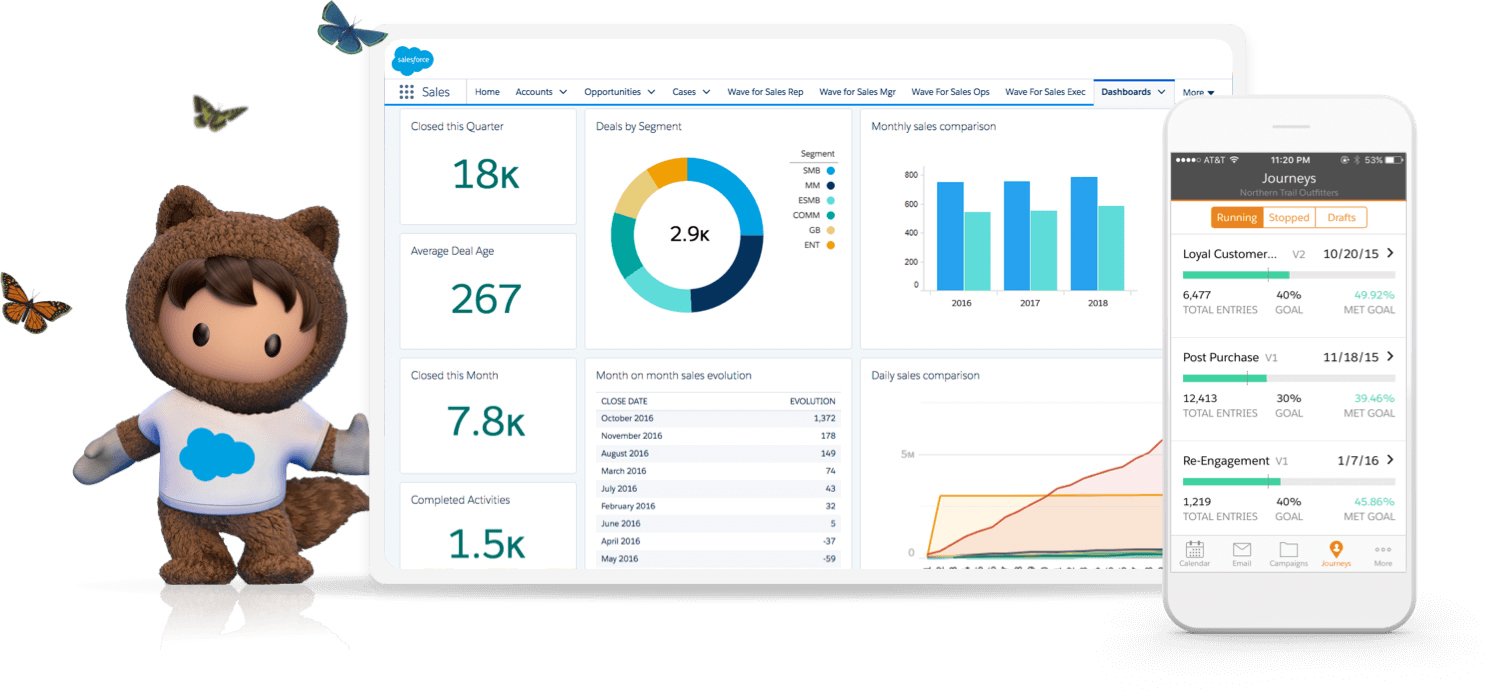
Without CRM, valuable data could easily be misplaced or forgotten. For example, recalling details from a phone conversation with a customer for immediate problem resolution, or identifying which leads to target for marketing efforts, becomes challenging.
With the emergence of the internet and the vast amounts of data businesses collect, software solutions for managing contact information and related data have been developed, known as CRMs. A CRM acts as a central hub for organizing all information related to potential and current customers, suppliers, and other business contacts.
It organizes and makes this data easily accessible and interpretable, transforming it into actionable insights for revenue generation. CRMs amalgamate customer information from various sources, tracking every interaction—be it through phone calls, emails, in-store visits, websites, social media, call centers, online advertisements, and sales activities—to provide a comprehensive customer view and store personal preferences to enhance satisfaction and, consequently, sales. This database of profiled customers enables companies to maintain direct and effective communication, improving future profitability.
The Advantages of CRM for Businesses
A cloud-based CRM system offers universal access to the company’s data repository, requiring only a device and an internet connection.
Key CRM Features and Their Business Benefits:
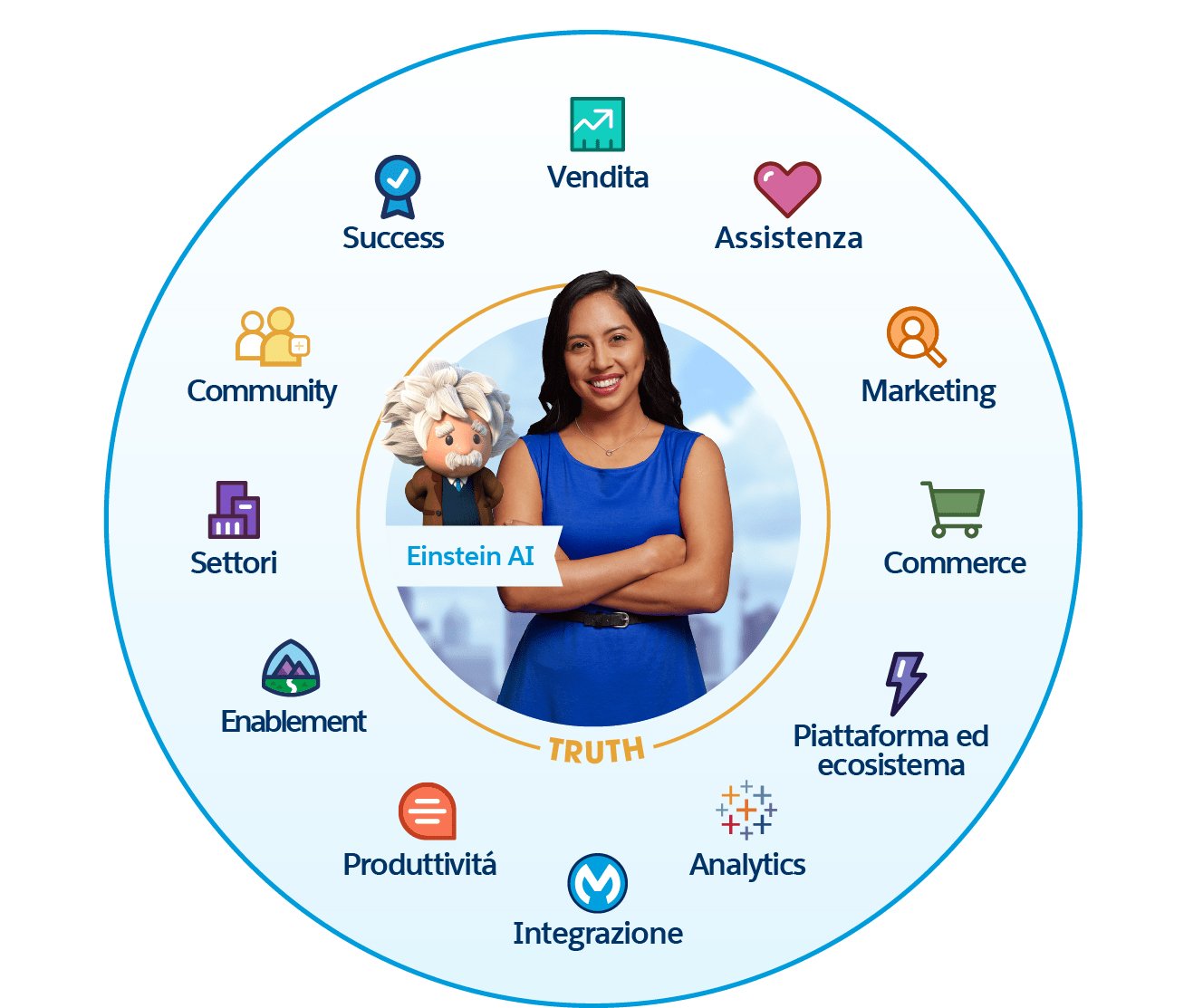
- Better Customer Understanding: A CRM grants access to up-to-date, detailed customer information, crucial for effective sales and personalized service, by centralizing all customer-related data, orders, communications, and more.
- Lead Segmentation and Management: It facilitates monitoring the entire sales process from potential lead to conversion, allowing for targeted marketing strategies and customer categorization for personalized marketing campaigns.
- Sales Forecasting: CRM provides forecast reports, enabling sales teams to more effectively qualify leads and streamline sales processes.
- Customer Retention through Analytics: Post-acquisition, data-driven insights help maintain customer loyalty by facilitating the tracking of engagements, follow-ups, and re-engagements with dormant customers.
- Email Integration and Monitoring: CRM systems can synchronize with various email platforms for a unified customer view.
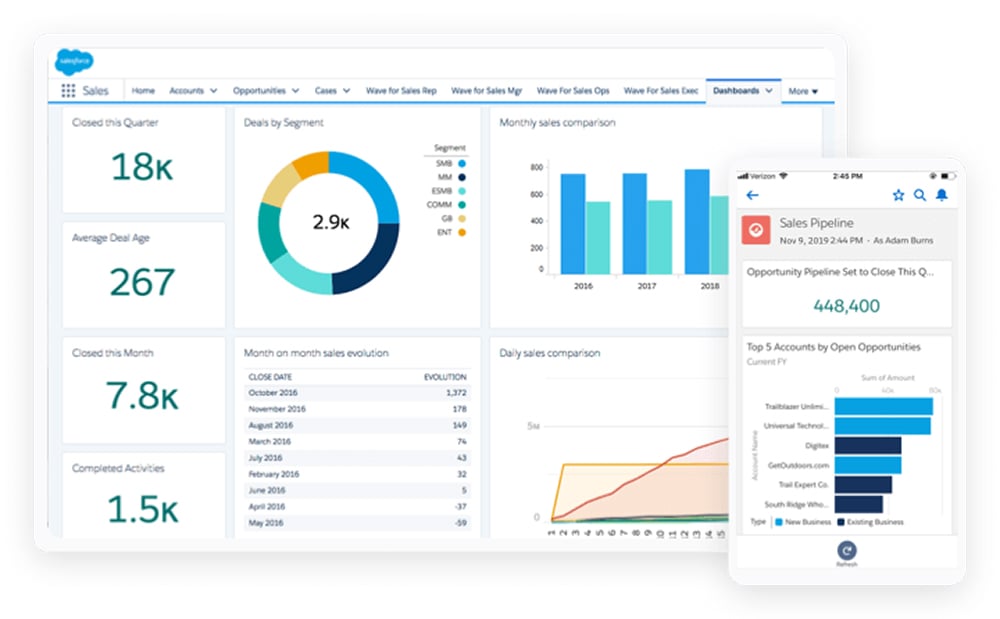
- File and Content Sharing: Centralizes information sharing within the company, promoting collaboration.
- Integration with Other Software: Enhances automated sales processes, including email marketing and customer follow-ups.
- Internal Communication: Supports instant messaging among employees for cohesive customer management and maintaining a unified brand voice.
Salesforce: Its Essence and Functionality
Launched in 1999 by Marc Benioff and co-founders, Salesforce is a SaaS-based CRM service, facilitating closer business-customer relations through cutting-edge technologies like Cloud, Mobile, Social, IoT, and AI. Adopted by an array of companies, Salesforce is anticipated to continue growing significantly.
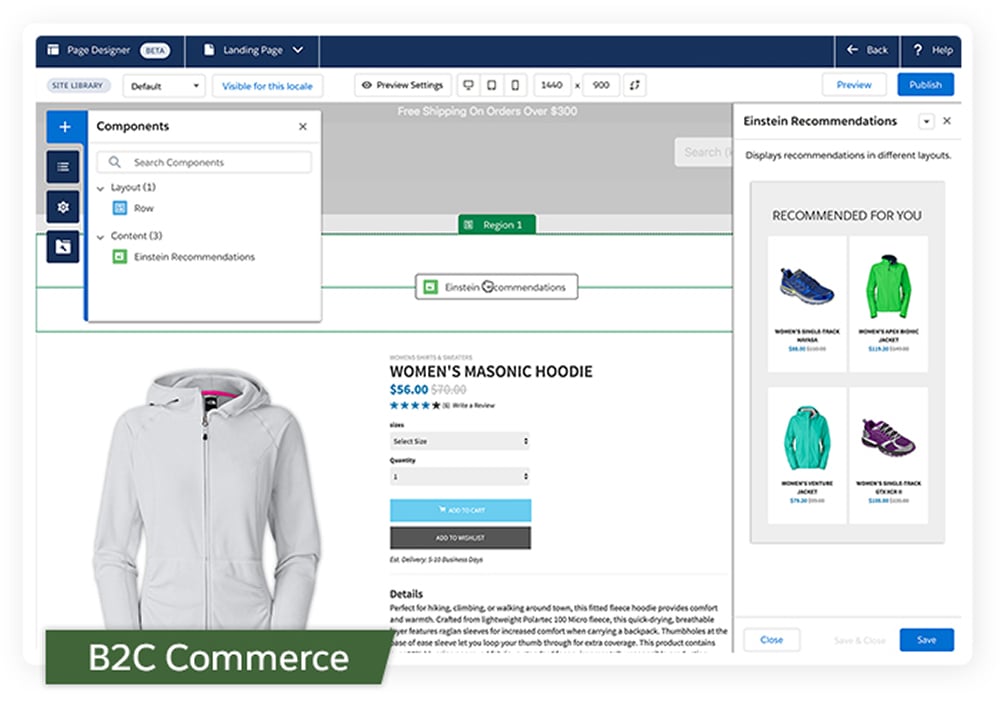
As a CRM, Salesforce helps businesses maintain ongoing relationships with customers and stakeholders by collecting and analyzing their data. It offers a comprehensive view of customers via customizable dashboards, aiding in the delivery of enhanced user experiences.

Salesforce offers various services catering to e-commerce and beyond:
- Salesforce Commerce Cloud: Supports e-commerce or retail operations across all platforms.
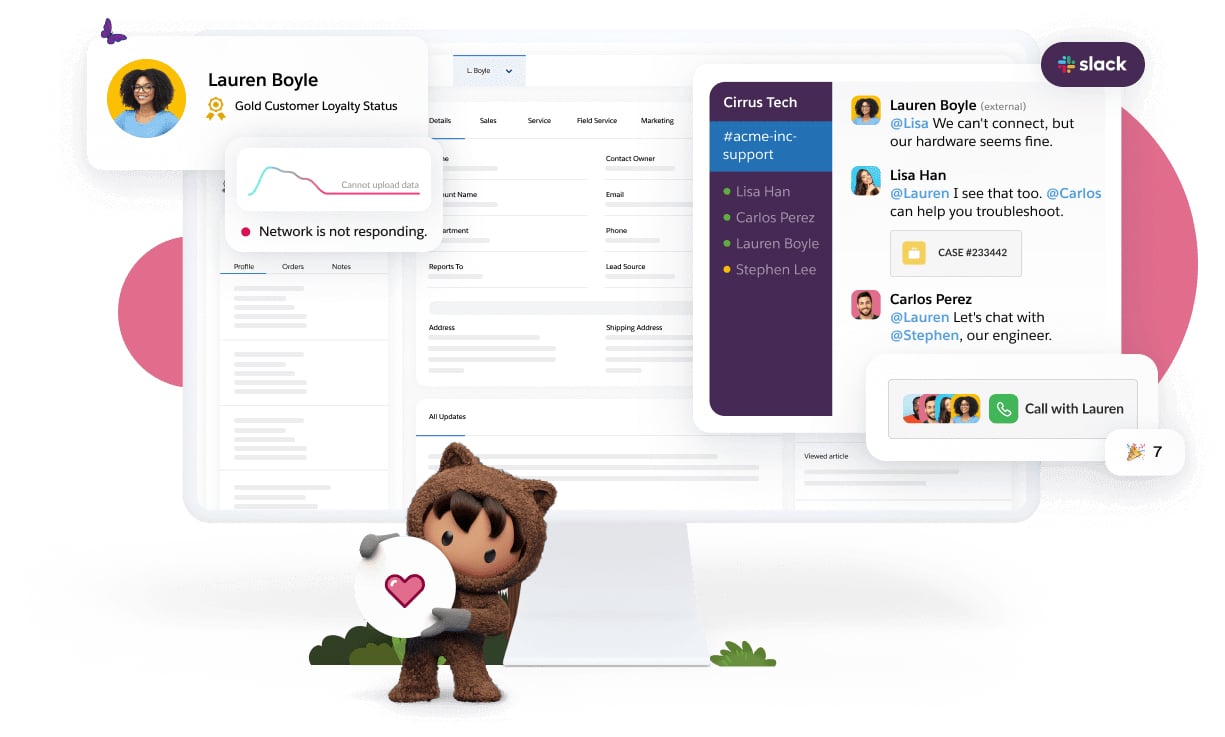
- Salesforce Marketing Cloud: A robust digital marketing platform managing the entire customer journey.
- Salesforce Sales Cloud: Provides tools to boost sales from marketing to customer service.
- Salesforce Service Cloud: Enhances customer service efficiency with comprehensive customer overviews.
- Salesforce Community Cloud: Facilitates communication among partners, customers, and employees.
- Salesforce App Cloud: Allows for the creation of custom applications on the Salesforce platform.
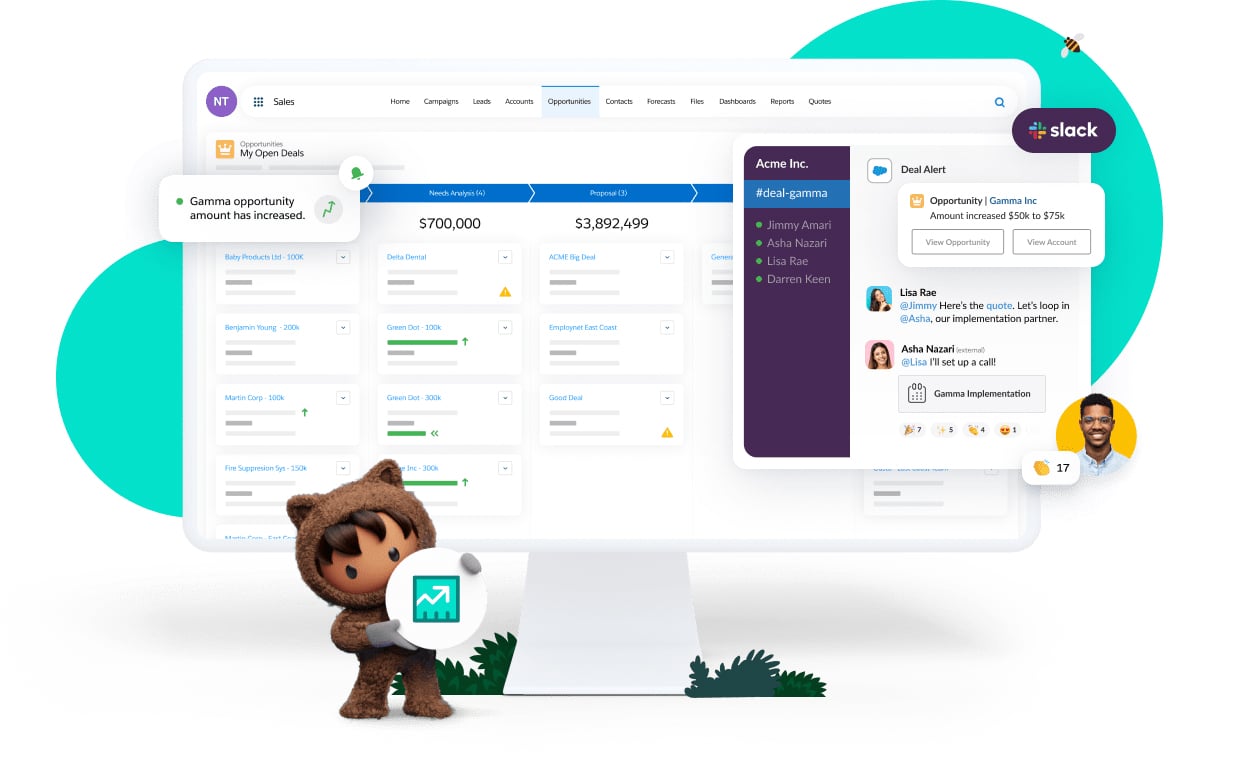
Salesforce enables businesses to streamline their sales processes, engage with customers across physical and digital domains, and rapidly adapt to market changes, thereby simplifying sales operations and enhancing customer engagement across various channels.
In summary, Salesforce is a versatile software that supports businesses through customer acquisition, sales, and post-sales processes, leveraging its diverse functionalities.


